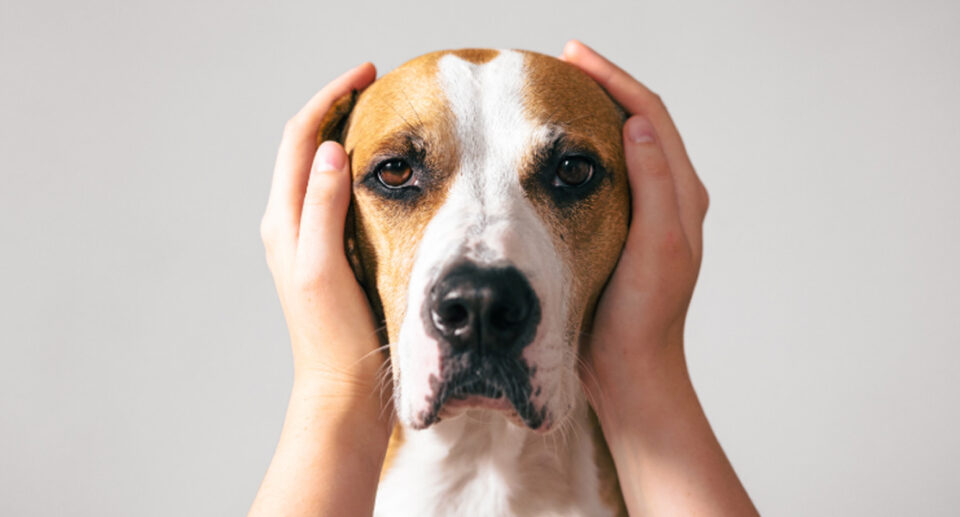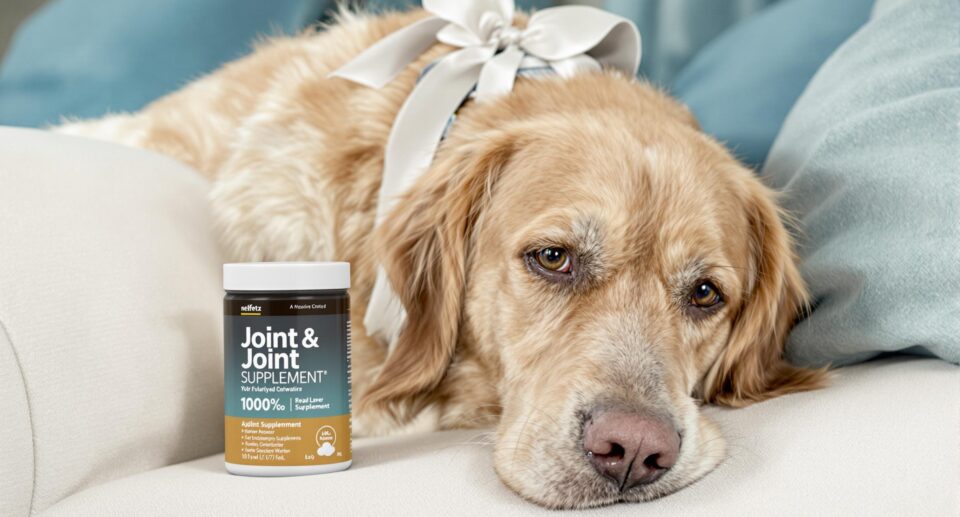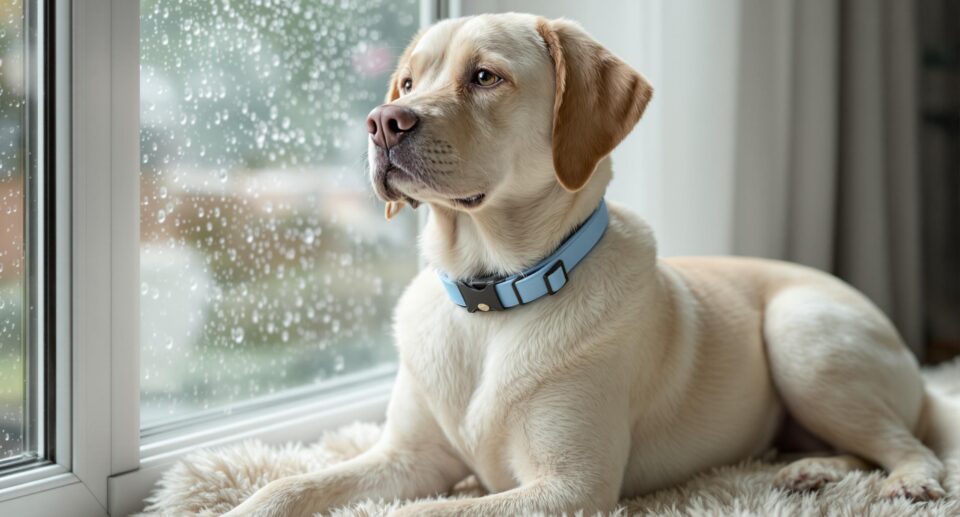How to Calm Your Dog’s Anxiety to Loud Noises

It’s quite normal for loud noises to startle humans and pets alike. A fear of fireworks and loud noises in general is common in dogs and other pets, and in many cases is accompanied by other anxieties, such as a fear of thunderstorms or separation anxiety. However, some dogs may experience an excessive fear or phobia to loud noises that can be harmful to their well-being.
Common reactions dogs have to loud noises include:
- Trembling
- Whimpering
- Panting
- Constantly seeking your attention (or protection)
- Attempting to run away or escape from the noise
Why are dogs scared of loud noises?
For many dogs, the age at which such a phobia develops is unknown. Sometimes, it can originate from being exposed to a sudden loud noise that is particularly disturbing. Some dogs may have been exposed to stressful or loud noises when young, resulting in a lasting bad memory. For fireworks, it may not be just the noise causing the problem for the anxious behavior. It may be the flash of light that accompanies the loud noise, the strong sulfur smell that comes after the explosion, or it may be the suddenness or frequency of the noise (an explosion or a screeching rocket).
Treatment for your dog’s noise anxiety and fear
The most important step in solving your dog’s phobia is to manage and decondition the behavior, and avoid doing anything that reinforces the behavior. For instance, if your dog is scared and runs away to escape the noise, that behavior is reinforced. Similarly, the fear response will be reinforced if you reward the behavior with extra attention by stroking your dog, or trying to reassure him or her in any other way. The opposite approach of becoming angry or reproaching your dog will also be counterproductive. One tactic that may be useful is playing a game with your dog to distract him or her from the fireworks or other loud noise, or having him or her play with another dog (as long as the other dog does not have the same fear).
In some cases, your veterinarian may recommend anxiety medications for dogs to help alleviate phobias for loud noises and fireworks. Unfortunately, there are no drugs registered to treat these types of phobias in dogs. Treatments for fear of fireworks fall into two broad categories—drugs and alternative therapies such as dog appeasing pheromone (D.A.P.) and homeopathic treatments.
The drugs most commonly used in reducing fear of fireworks include benzodiazepines, the alpha-adrenergic propanolol (generally administered with phenobarbitone), selective serotonin reuptake inhibitors (SSRIs) and tricyclic antidepressants (TCAs). All of these have possible side effects, such as lethargy and sedation, some may cause vomiting, and none have really been proven to work in relieving the fear of fireworks.
Natural remedies for treating loud noise anxiety in dogs
With SSRIs and TCAs, the medication needs to be started weeks ahead of the stimulus that causes the phobia. In many cases, this is hardly practical. For example, Acepromazine may produce sedation and can also sensitize your dog to sound, potentially making the problem worse.
In contrast, natural homeopathic remedies, such as the Thundershirt, do not cause side effects and have received promising reports. In fact, 80% of dog owners who tried Thundershirt for a variety of anxiety problems noticed improvement in their dogs. Thundershirt is an affordable, drug-free solution for pets with anxiety problems. It uses gentle, constant pressure on your pet’s torso (like a constant hug) to help calm your nervous pet. Like acupuncture and acupressure does for people, applying pressure to dogs has been proven to help calm them during fireworks or other noisy situations that can cause stress.
Using a crate to help your dog’s anxiety
Whether your dog’s anxiety is caused by loud noises or separation anxiety, a crate can be an extremely helpful pet supply. Using a crate is helpful in keeping your dog safe from unforeseen dangers when you are away and even when you are at home. Plus, when used with proper training, your dog will come to think of the crate as its personal space. For more information on the benefits of using a crate, read our guide on crate training your dog.





